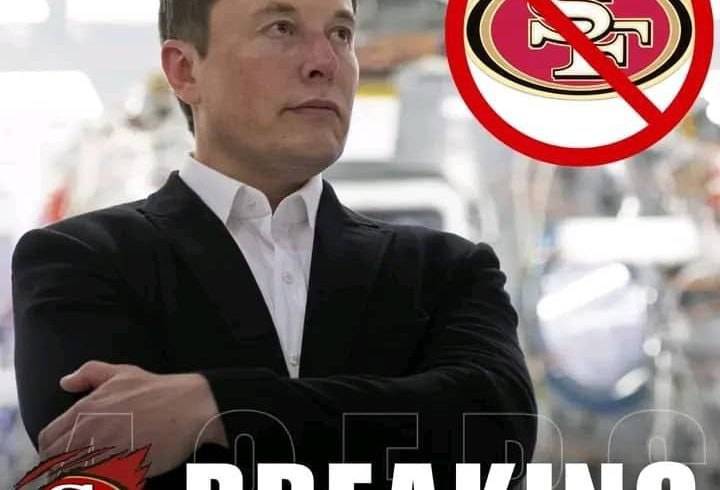In a recent development that has captured the attention of both the business and sports worlds, Elon Musk, the CEO of Tesla and SpaceX, made a provocative statement, labeling boycotters of Tesla as “unpatriotic.” This came in the wake of reports that the San Francisco 49ers football team declined to collaborate with Tesla on a proposed partnership initiative.
The Controversy
The conflict began when rumors surfaced that Tesla had approached the San Francisco 49ers with a sponsorship deal involving sustainable transportation solutions for the team. Reports suggest that Tesla offered to provide electric vehicles for the team’s staff and support infrastructure upgrades at Levi’s Stadium to make it a model of green technology. However, the team reportedly rejected the offer, citing “misaligned brand priorities” as the primary reason.
Shortly after these reports became public, Musk took to social media, stating: “Boycotting Tesla is not just a slight against the company; it’s a blow to American innovation and energy independence. Those who refuse to support us are unpatriotic.”
Mixed Reactions
Musk’s comments have sparked a heated debate. Supporters of Tesla and Musk argue that the company represents the future of American technological leadership and sustainability. “Elon is right,” tweeted one prominent tech entrepreneur. “Tesla is doing more for the planet and the U.S. economy than almost any other company. Boycotting them is counterproductive.”
On the other hand, critics accuse Musk of conflating business interests with patriotism. “Supporting or rejecting Tesla doesn’t determine someone’s loyalty to their country,” said one political analyst. “This rhetoric oversimplifies a complex issue.”
The Broader Context
Tesla’s relationship with various stakeholders has been a subject of scrutiny in recent years. While the company has earned praise for revolutionizing the electric vehicle market and pushing for renewable energy adoption, it has also faced criticism for workplace practices, high-profile recalls, and Musk’s often controversial public statements.
The San Francisco 49ers’ decis0ion to reject Tesla’s proposal may also be indicative of broader trends. Professional sports teams have become increasingly selective about their partnerships, often choosing to align with brands that resonate strongly with their fanbase and values. In this context, the 49ers’ move could reflect strategic brand management rather than an outright rejection of Tesla’s principles.

